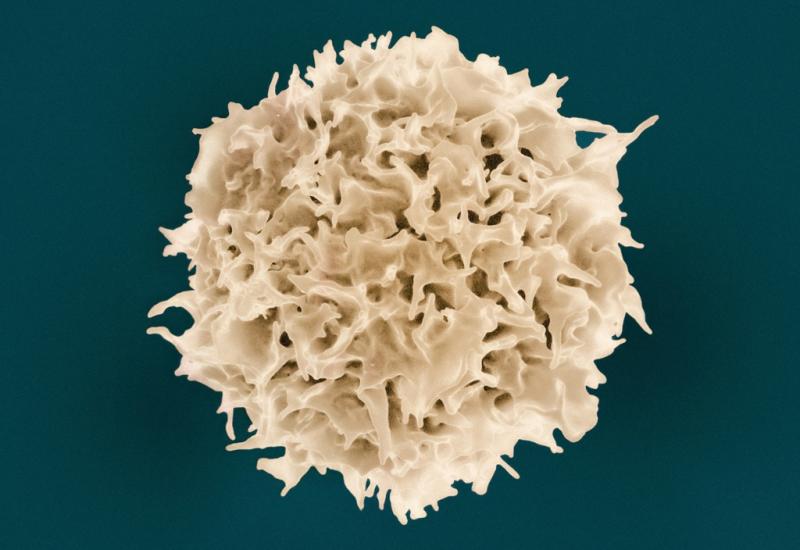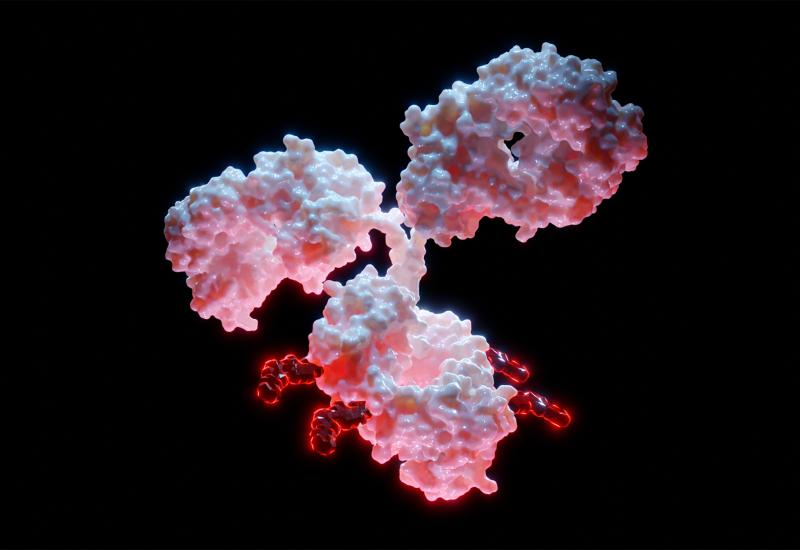
Revolution could have a first-line pancreatic balancing act
Efficacy looks better with daraxonrasib plus chemo versus monotherapy, but toxicity looms.
Efficacy looks better with daraxonrasib plus chemo versus monotherapy, but toxicity looms.

Revolution Medicines has long planned a trial of its pan-RAS inhibitor daraxonrasib in first-line pancreatic cancer, and on Wednesday evening the company presented the first data in support of this move.
Both daraxonrasib monotherapy and a chemo combo produced promising response rates in phase 1. But Revolution could have a balancing act on its hands, with daraxonrasib plus chemo showing better efficacy versus monotherapy, but also an increase in toxicity. Revolution's stock climbed 15% on Thursday morning on the data.
The company will test both regimens in its planned phase 3 first-line trial, Rasolute-303, slated to start in the fourth quarter. As previously disclosed, this study will incorporate three arms: daraxonrasib monotherapy, daraxonrasib plus chemo, and chemo alone.
What’s new is the disclosure that the chemo regimen will be gemcitabine plus Abraxane (GnP). This has been chosen rather than a folfirinox combo that Revolution had also been evaluating, but which was determined to be too toxic.
Historical data with GnP, cited by Revolution, show an ORR of 23-43%, median PFS of 5.5-7.1 months, and median OS of 8.5-11.7 months – the bar that daraxonrasib will need to clear in phase 3.
First-line response rates
So far, the early data look promising. The monotherapy results come from the RMC-6236-001 trial, while the combo data are from the RMC-GI-102 study, which tests various Revolution projects and combinations.
At a cutoff date of 28 July, daraxonrasib monotherapy produced an ORR of 47% among 38 evaluable patients, while the GnP combo led to an ORR of 55% among 31 evaluable patients. These numbers included some unconfirmed responses – although only those that might still had be confirmed later.
An increase in efficacy with the chemo combo could be outweighed by toxicity, however. In the combination arm, 58% of patients had treatment-related grade 3 or higher adverse events. During a conference call Revolution’s chief medical officer, Wei Lin, said this was “largely” down to the inclusion of chemo.
Daraxonrasib in first-line pancreatic cancer
| Daroxonrasib | Daraxonrasib + chemo | |
|---|---|---|
| ORR* | 47% (18/38) | 55% (17/31) |
| cORR | 42% (16/38) | 48% (15/31) |
| Gr≥3 TRAEs | 35% | 58% |
| Dose reduction due to TRAE | 33% | 23% daraxo/ 43% chemo |
| Discontinuation due to TRAE | 10% | 5% daraxo/ 8% chemo |
| Treatment-related death | 0 | 0 |
Note: *includes confirmed + unconfirmed responses that still had potential to confirm. Source: company presentation.
He noted that one overlapping toxicity between the two therapies was diarrhoea, which was seen at grade 3 or above in 13% of patients receiving the combo. There were no grade 4 or 5 treatment-related adverse events of diarrhoea, he added.
When asked about the contribution of chemo, and the durability of responses, Lin said it was too early to assess durability, and that these results would be reported at a later date.
Revolution’s chief executive, Mark Goldsmith, added that Rasolute-303 could lead to “multiple options” for patients, implying that the company might not have to choose between monotherapy and a chemo combo.
Meanwhile, Lin also disclosed that Revolution had tested daraxonrasib in combination with folfirinox, but noted that although this regimen produced “robust antitumour activity” it was held back by toxicity. Folfirinox also requires patients to be fitter at baseline, he added, which would exclude many pancreatic cancer patients.
He acknowledged that folfirinox is sometimes seen as the more efficacious chemotherapy, but contended that recent studies have shown that there is “not a substantial difference” between survival rates with folfirinox versus GnP.
Second-line and adjuvant
Revolution also reported updated phase 1 results in second-line pancreatic cancer that look in line with previous disclosures.
Here, the phase Rasolute-302 trial is well under way, with enrolment expected to be completed this year, and data due in 2026.
Revolution also has pivotal plans in adjuvant pancreatic cancer, where it expects to start the Rasolute-304 trial next quarter. More details on that study’s design should be coming soon.
Phase 3 trials of daraxonrasib in pancreatic cancer
| Trial | Setting | Regimen | Primary endpoint | Note |
|---|---|---|---|---|
| Rasolute-302 | 2nd-line (RASm & RASwt) | Daraxonrasib (300mg) vs investigator’s choice chemo | PFS & OS in G12Xm pts | Due to complete enrolment in 2025, with data in 2026 |
| Rasolute-303 | 1st-line (RASm & RASwt) | Daraxonrasib monotx (300mg) or daraxonrasib (200mg) + GnP chemo, vs GnP chemo | PFS & OS | To start Q4 2025 |
| Rasolute-304 | Adjuvant | Undisclosed | Undisclosed | To start Q4 2025 |
Source: OncologyPipeline & company presentation.
This story has been updated to clarify the trials from which the first-line data derive.
5019













